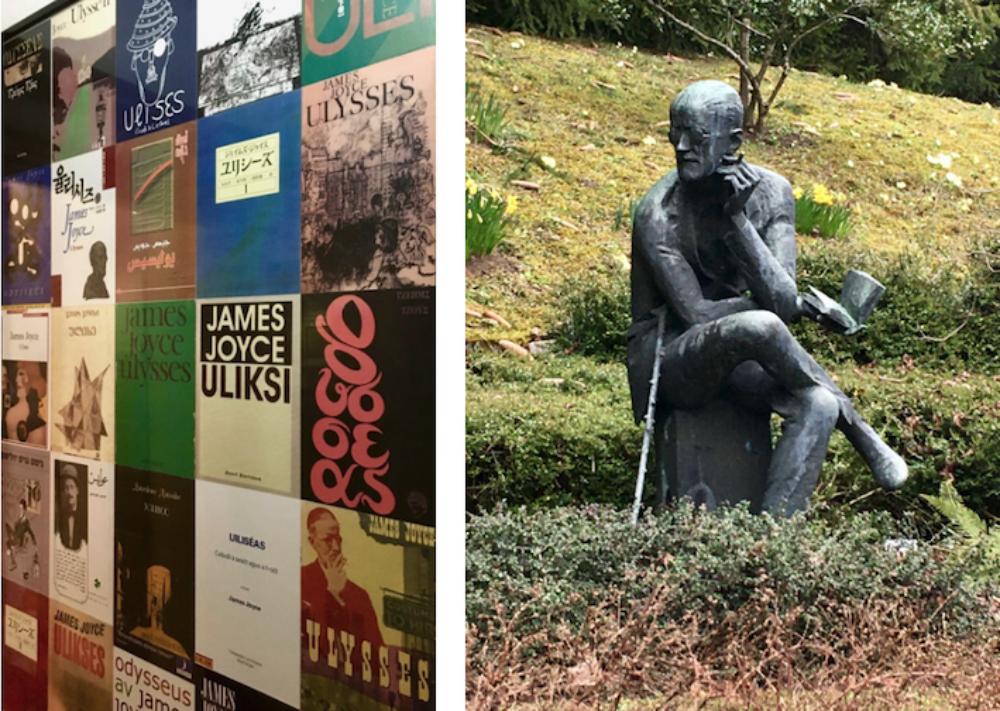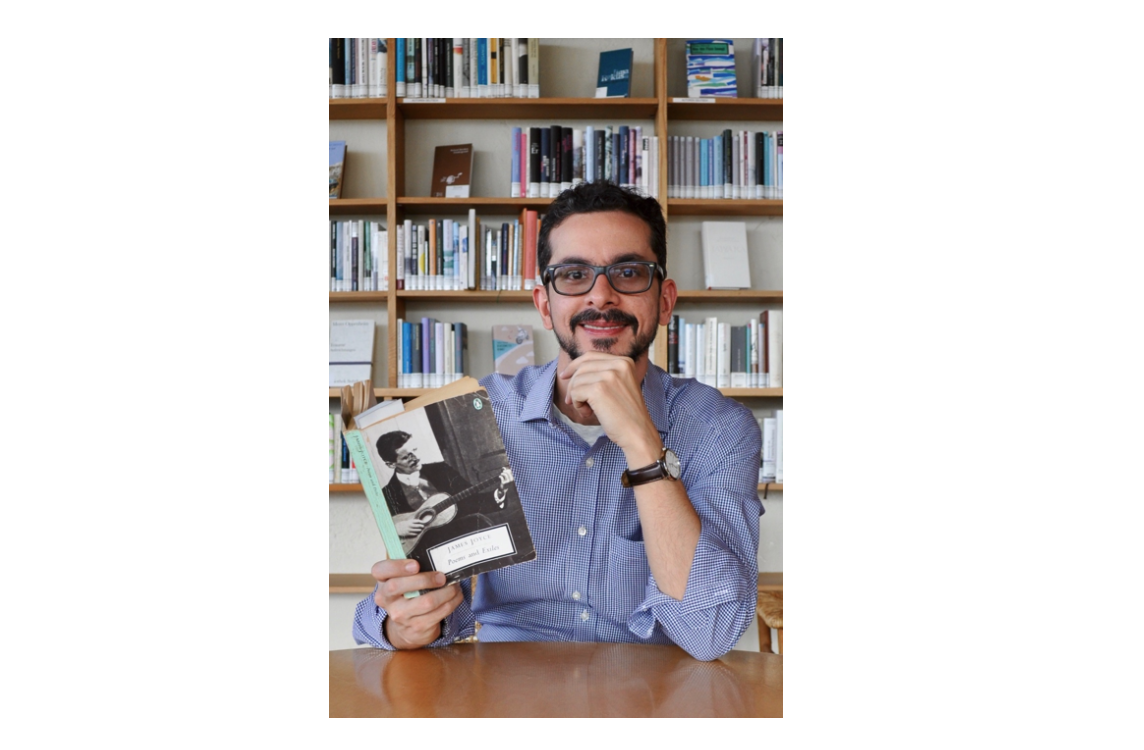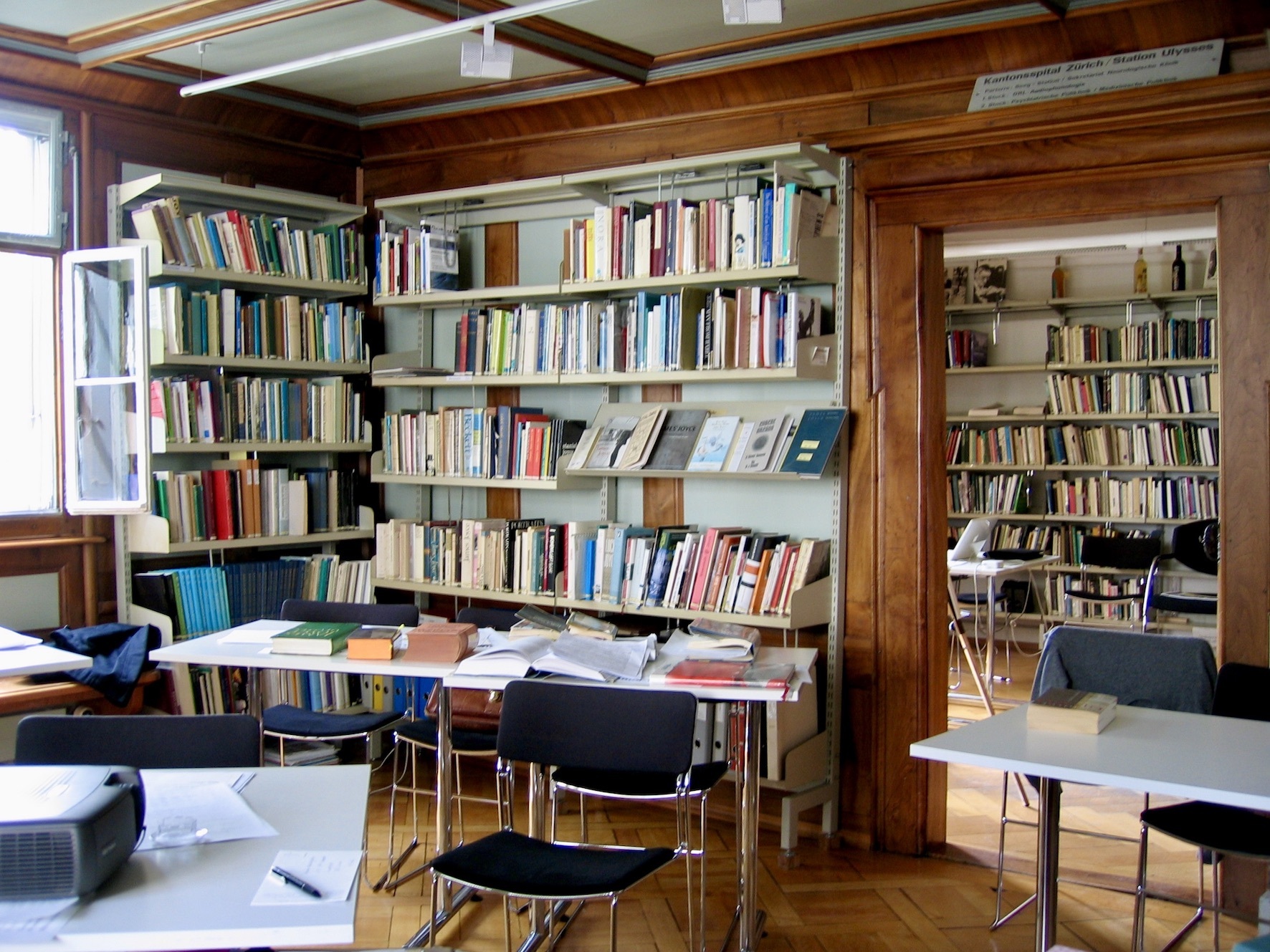Bringing Joyce Back to Switzerland

James Joyce’s poetry of early youth and occasional poetry remain untranslated in Brazil. Vitor Alevato do Amaral, Brazilian translator and Joyce scholar, dedicated his scholarship stay at Translation House Looren to fill up this gap.
By Vitor Alevato do Amaral
The first Portuguese version of James Joyce’s Ulysses (1966), by the Brazilian Antônio Houaiss, was a landmark in translations into the Portuguese language on both sides of the Atlantic. Translations of A Portrait of the Artist as a Young Man and Dubliners had already appeared in Brazilian Portuguese in 1945 and 1964 respectively. Finally, from 1999 to 2003, Donaldo Schüler’s five-volume, bilingual Finnegans Wake / Finnicius Revém was released in Brazil, and Joyce’s “untranslatable” book of the night was finally entirely rendered in Portuguese.
Unpublished by Joyce and scattered across pieces of paper, letters, and cards, in holographs or typescripts, these poems – or their fragments – have two English-language editions. The 1991 Faber and Faber edition bears the signature of Joyce’s most important biographer Richard Ellmann, whereas its Penguin Books rival was prepared by J. C. C. Mays and published one year afterwards. Altogether, there are more than one hundred poems, and most of them can also be found in the James Joyce Archive (Garland, 1978).
What we mostly find in the occasional poems is Joyce as a poignant, sarcastic writer. Samuel Roth, the American editor accused of pirating Ulysses on the pages of the magazine Two Worlds Monthly, was Joyce’s target more than once. In the following epigram, we can notice Joyce punning with the surname ‘Roth’; ‘rot’, ‘red’ in German; and ‘yellow’, perhaps alluding to the ‘yellow press’ as French Joyce translator Jacques Aubert suggests:
For he’s a jolly queer fellow
And I’m a jolly queer fellow
And Roth’s bad German for yellow
Which nobody can deny
However, if the occasional poetry reminds us of the Joyce of Ulysses and Finnegans Wake,the early poetry is full of the sentimentalism that Joyce would later abandon. Below is the extant fragment of one such poem, with my tentative translation:
That I am feeble, that my feet
Are weak as young twigs in the wind;
That this poor heart, which was of old
So reckless, passionate and proud,
Shivers at trifles and wanes cold
Whene’er thy fair face shows a cloud.
A golden bird in azure skies,
Late radiant with sunbright wings,
Is fallen down to earth, and sighs
* * *
Que fraco estou, meus frágeis pés
são galhos levados ao vento;
Que coração hoje vazio,
Mas inda ontem tão disposto,
Encolhe-se a tremer de frio
Se vê uma nuvem no teu rosto.
Um pássaro no céu safira,
Com as asas imitando o sol
Que cai no chão, depois suspira
Both the poems of his early youth and the uncollected occasional poems shed a light on Joyce’s writing, for in them we read Joyce the translator (of Verlaine, for example) as well as the poet of meter and rhyme (note the iambic tetrameters in the poem above). And is it not curious to see in the last line of the following poem the phrase “distant music”, which would later cross Gabriel Conroy’s mind in the short story “The Dead”, from Dubliners?
... Wind thine arms round me, woman of sorcery,
While the lascivious music murmurs afar:
I will close mine eyes, and dream as I dance with thee,
And pass away from the world where my sorrows are.
Faster and faster! strike the harps in the hall!
Woman, I fear that this dance is the dance of death!
Faster! — ah, I am faint... and, ah, I fall.
The distant music mournfully murmureth.
In 2019, after signing a contract with new São Paulo-based publishing house Syrinx, I applied to the Joyce Scholarship for the 2020 Looren Residency. Thanks to their grant, I stayed in Switzerland from 2 February to 3 March.
While at Translation House Looren, I was able to enjoy the perfect atmosphere to carry on my literary translation project. The House balances the necessary tranquillity with vibrant moments of conviviality with fellow translators from different places. Complementary to that, on the premises of the Zurich James Joyce Foundation I had access to a myriad of books by and about Joyce, including translations of his works into various languages. There, I was able to exchange ideas with other Joyceans, the Foundation curators, and its founder and director Fritz Senn, one of the leading Joyce researchers in the world.
Joyce visited Zurich for the first time in 1904; lived in the city from 1915 to 1919; returned there on short visits in the 1930s; went to Zurich for the last time in December 1940 and died there on 13 January 1941. Zurich left a mark on his life and works. There Joyce wrote parts of Ulysses and met Frank Budgen, the author of James Joyce and the Making of 'Ulysses' (1934). In one of his occasional poems, Joyce writes: “Goodbye, Zurich, I must leave you, / Though it breaks my heart to shreds”. The poem is sent to his son Giorgio and his wife Helen – or rather Oigroig e Neleh, as Joyce jokes – in a letter of 1934 written on a sheet of paper from the Carlton Elite Hotel, Zurich.
Although the Zurich of Joyce’s days has undergone transformations, several places related to Joyce’s life in Zurich still can be seen or visited, and that was another asset to me as a Joyce translator and researcher. Translating his poems at Looren was just my way of bringing Joyce back to the city – Joyce again in Switzerland.

Vitor Alevato do Amaral teaches English Language Literatures at the Department of Modern Foreign Languages, Fluminense Federal University (UFF) in Niterói, Rio de Janeiro. His main areas of research are Joyce Studies and Literary Translation, with a focus on the retranslations of James Joyce’s works. He is a member of the executive board of the Brazilian Association for Irish Studies (ABEI) and coordinator of the Joyce Studies in Brazil research group. His e-mail is vitoramaral@id.uff.br
Scholarship possibilities in conjunction with the James Joyce Foundation
Translation House Looren has a long-standing partnership with the Zurich James Joyce Foundation: since 2015, a residency scholarship has been awarded every year at Translation House Looren. Translators of all target languages can apply with an ongoing translation project of a work by James Joyce. The residency grant is endowed with CHF 1500 and is tied to a one-month stay at Translation House Looren. There is also a workplace available at the James Joyce Foundation in Zurich.
The new scholarship for the translation of contemporary Irish literature, the Translation Scholarship and Looren Residency for Irish Literature, promotes translations into one of the four Swiss national languages and will be offered for the first time for the year 2021.
You can find out more about both scholarships here.


